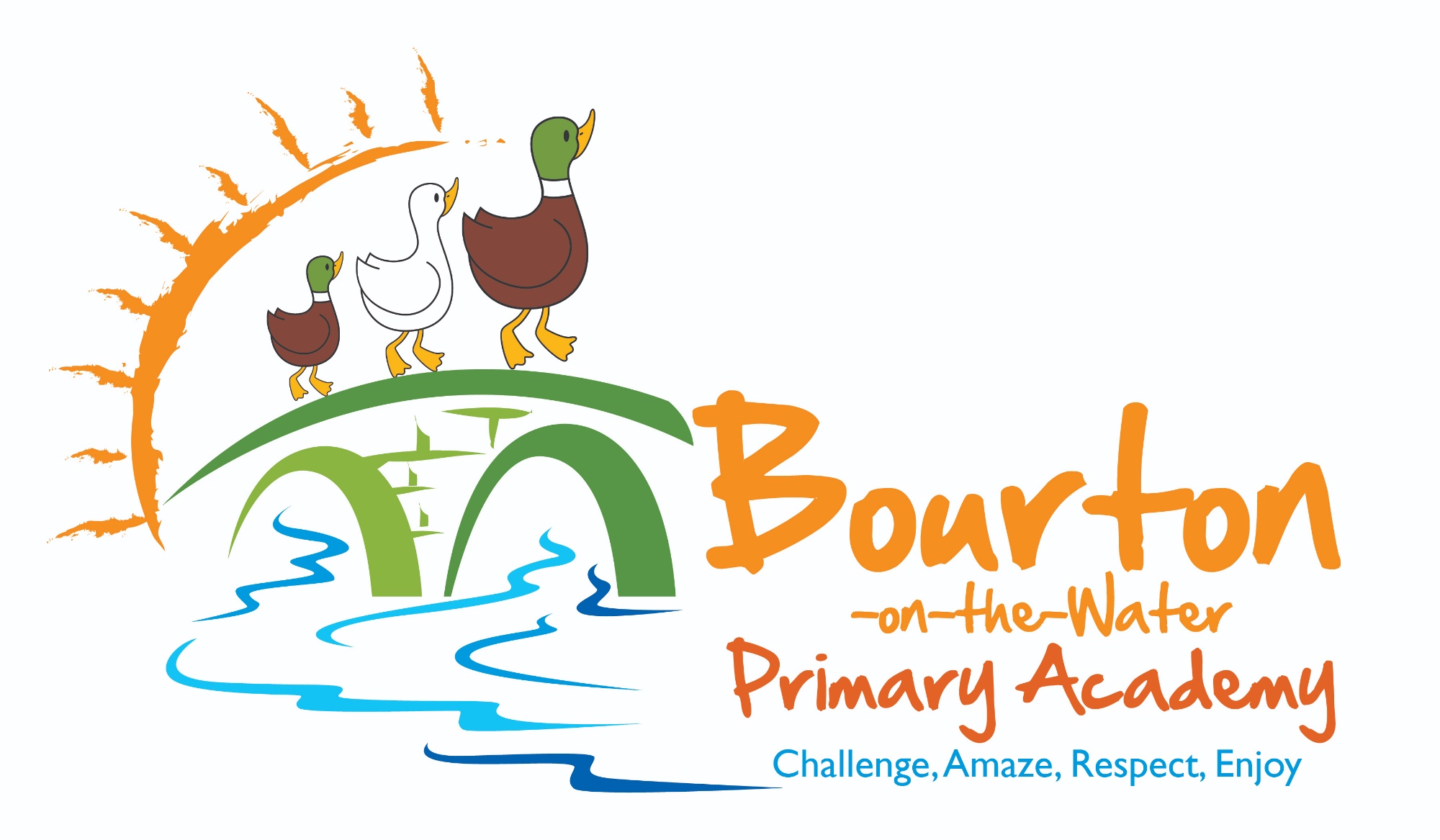Ofsted:
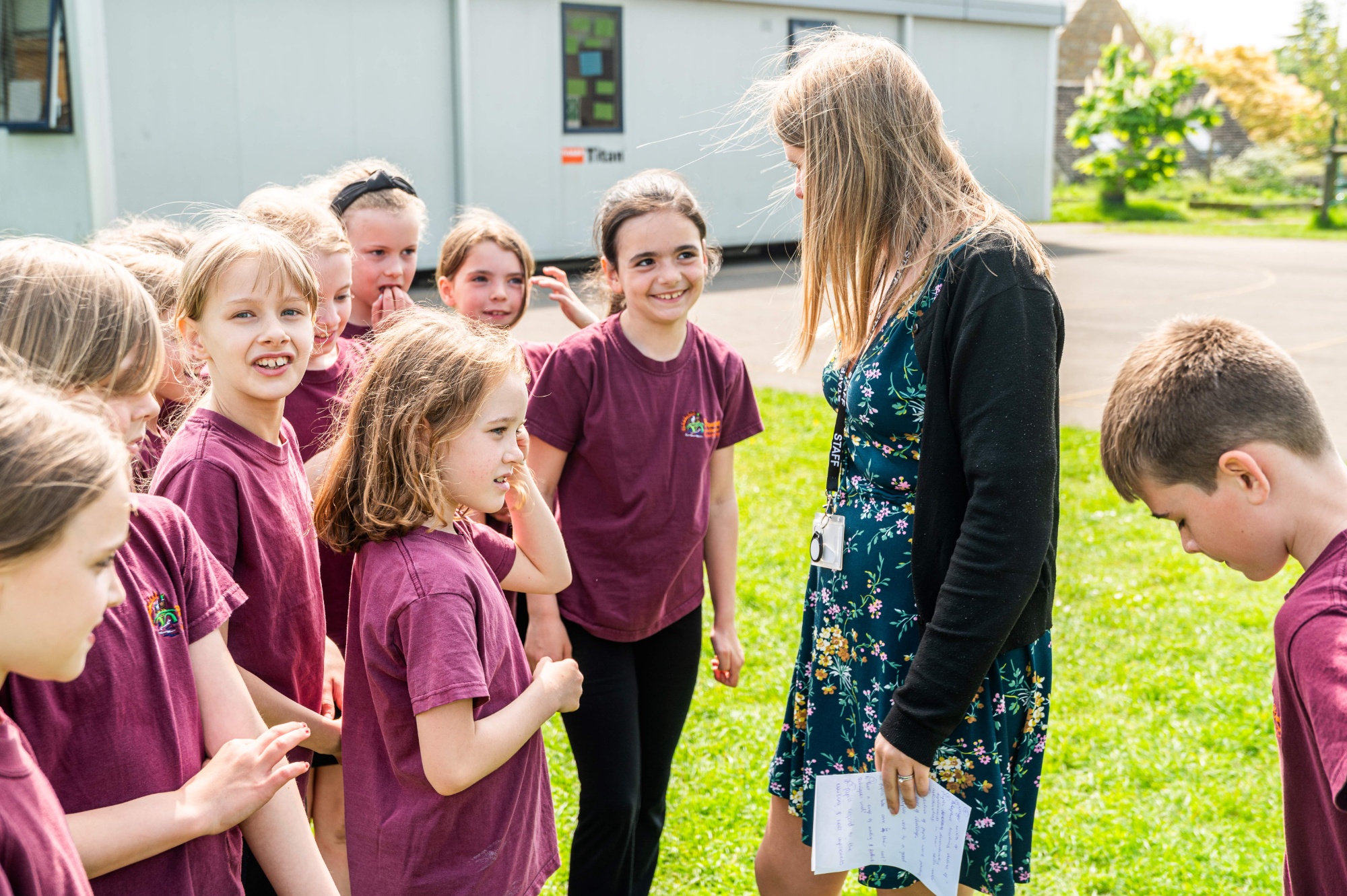
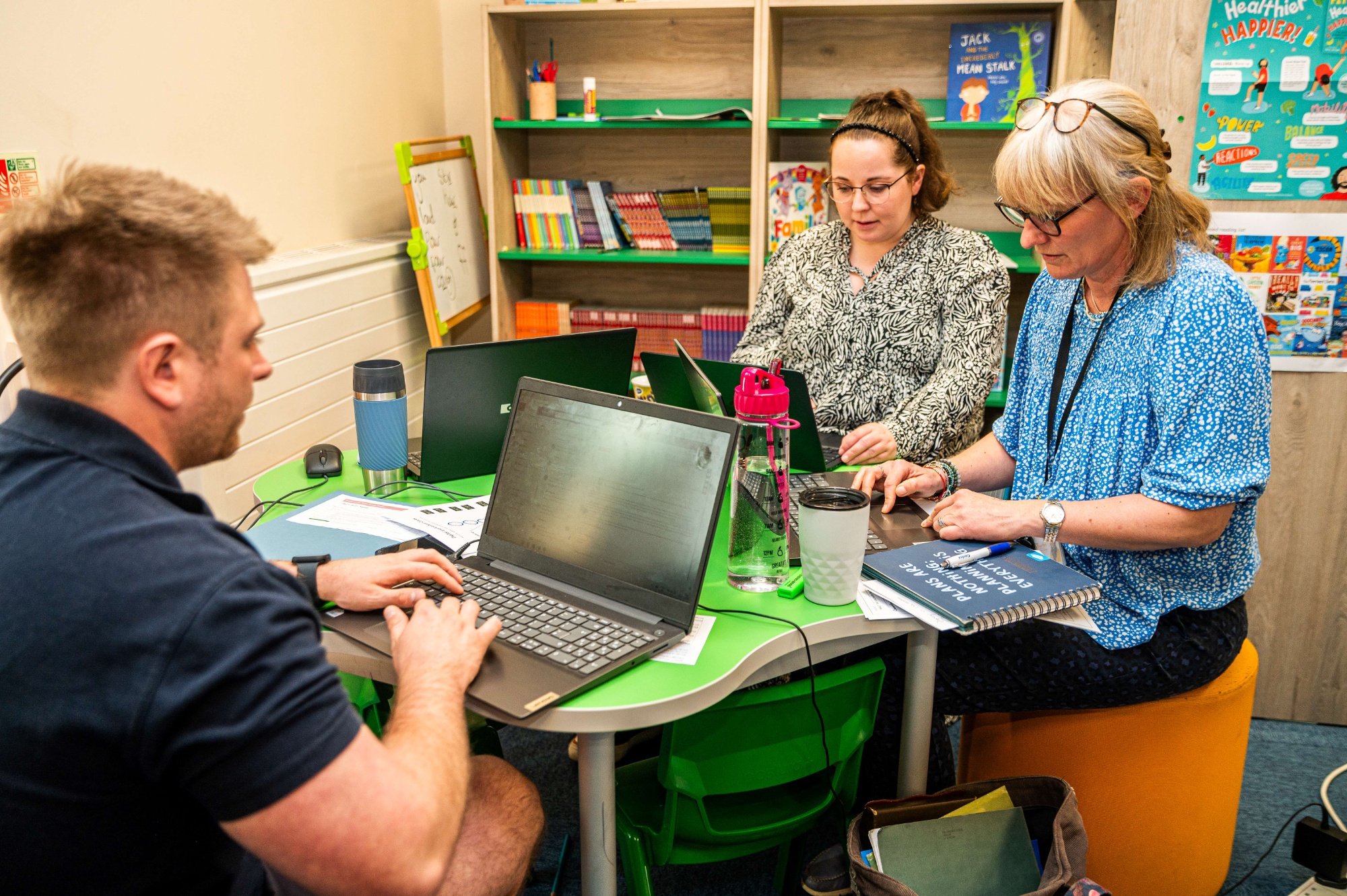
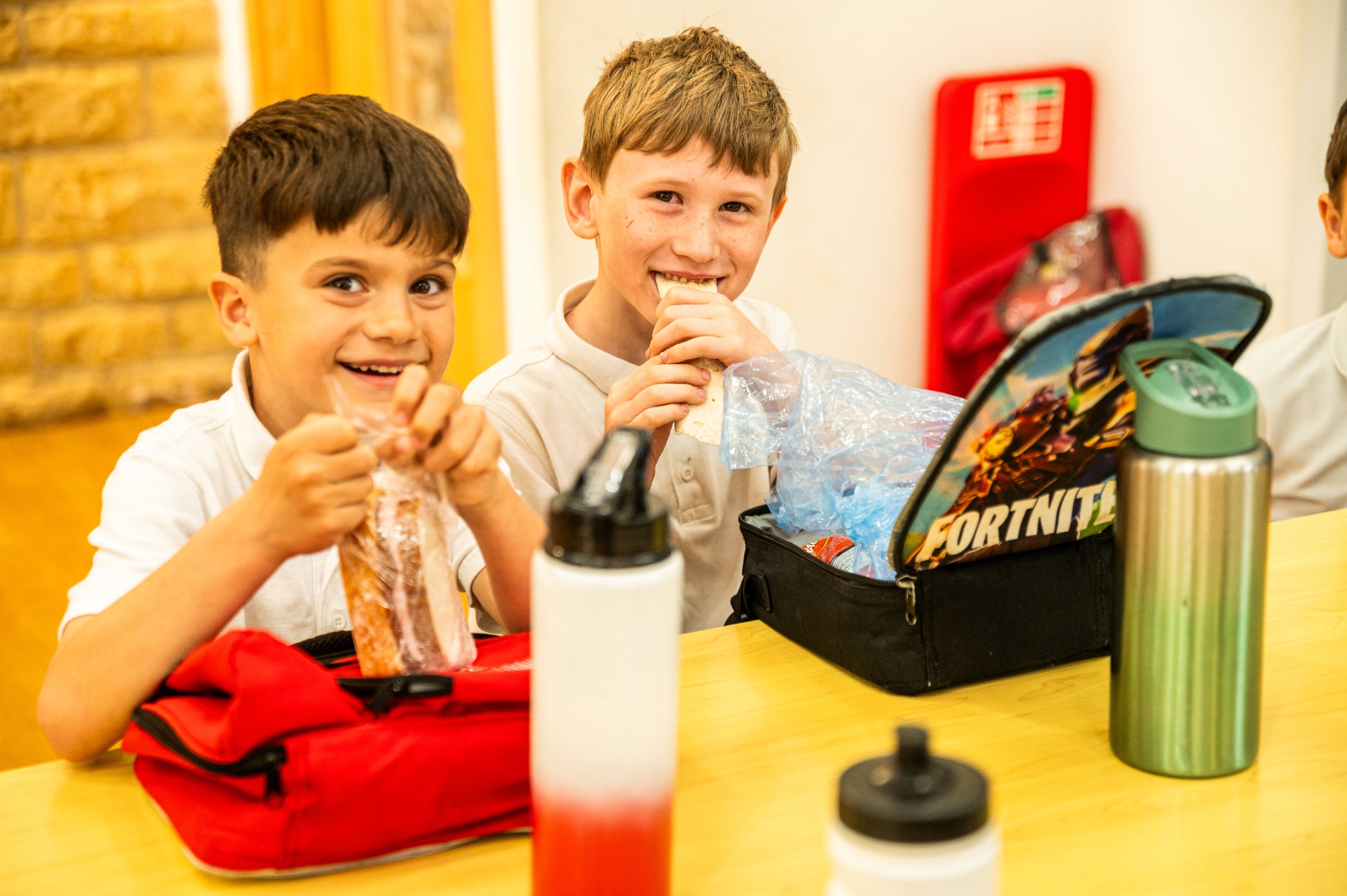
We were last inspected in November 2021, where OFSTED graded the school as 'Good'. The full report is available through clicking on the link below.
Inspection dates: 13 and 14 October 2021
View report
If you just want to read the headline findings, read on...
Outcome Bourton-on-the-Water Primary School continues to be a good school.
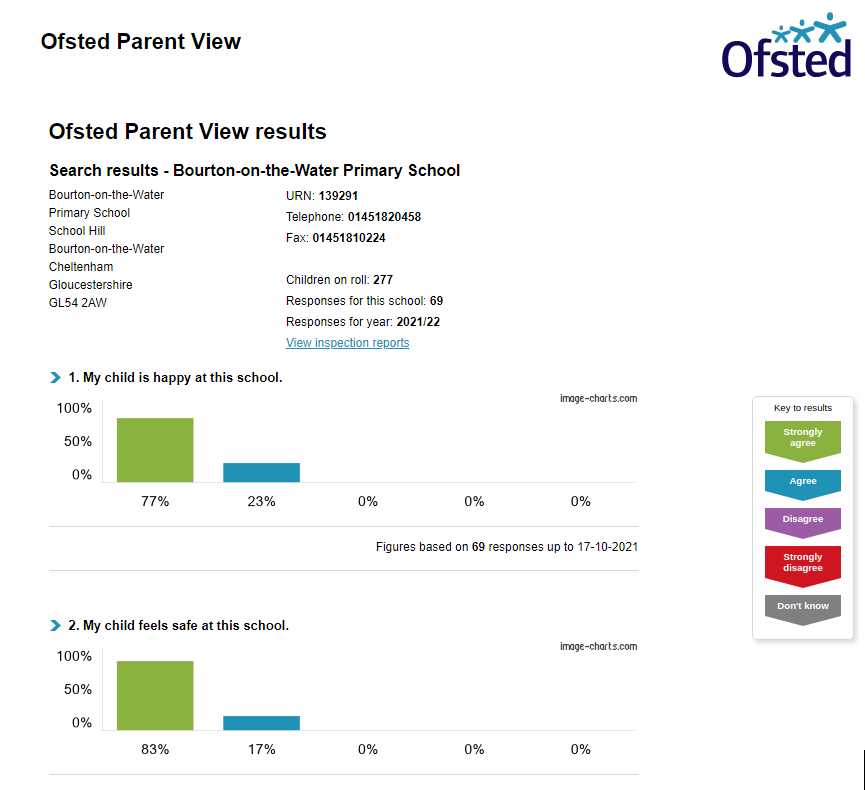
What is it like to attend this school?
Pupils do well in this friendly and inclusive school. They live by the school’s CARE statement of ‘Challenge, Amaze, Respect and Enjoy’ in all they do. Pupils respect adults and each other. They have a strong sense that regardless of differences, ‘everyone is treated equally’.
Leaders and staff have high expectations of pupils’ academic and personal success. Teachers challenge pupils’ thinking and expect them to work hard. Pupils respond positively to this.
Pupils with additional social and emotional needs receive high-quality specialist help and support. Pupils behave sensibly in and around the school. They enjoy the range of activities on offer at lunchtimes, from sports to games such as ‘What’s the time, Mr Wolf’. Pupils know that if bullying happens, leaders deal with it quickly and effectively. Consequently, this is a safe and happy place to learn. Parents and carers are overwhelmingly positive about the school’s work. They appreciate how adults provide high levels of care, guidance and support. Many parents say that staff go out of their way to create a nurturing environment where all pupils can succeed.
What does the school do well and what does it need to do better?
The headteacher has created a culture where everyone feels valued. Across all areas of the school, including governance, there is a tangible sense of teamwork. Everyone pulls together and puts the pupils’ best interests first. Leaders and staff prioritise reading across the school.
In the early years, staff focus on developing children’s early communication and language. They instil the youngest children with a love of stories from the moment they start pre-school. Children enjoy acting out passages from familiar stories, such as ‘The Three Little Pigs’. Children in Reception enjoy learning phonics. They are quick to learn new sounds. Across the school, there is a well-organised approach to teaching early reading.
Extra help is in place for those who need it. Teachers use books to broaden pupils’ understanding of the world around them. For example, pupils in Years 5 and 6 know about the plight of refugees from reading a class novel. Many enthuse about how ‘reading takes us to a different place’. Since the previous inspection, leaders have revised and improved the school’s curriculum. Subject leaders have started to identify the knowledge and skills pupils need to succeed. Music is a strength.
Leaders use assessment effectively to check what pupils know and can do. For example, pupils build on their listening skills as they progress through school. Younger pupils recognise differences between high and low pitch, while older pupils use the correct vocabulary to describe music, such as ‘ostinato’ and ‘syncopation’. Pupils sing with great spirit and control in lessons. However, not all subjects are as well-developed. Some curriculum plans do not set out the precise knowledge that pupils need to know and remember. This means that pupils are not learning as well as they could in a few subjects.
The special educational needs coordinator (SENCo) knows pupils’ needs across the school. She has put in place effective additional support for those who need it. The SENCo ensures that staff are well-trained to provide this support. Pupils who use the ‘Nurture Hub’ benefit from tailored support to help them with their mental health and well-being. This is helping pupils with special educational needs and/or disabilities to manage their emotions. Many parents value how staff give their children ‘coping strategies and a safe place to share concerns’.
Leaders and teachers inspire pupils to be active and responsible citizens. Low-level disruption to learning is rare. Pupils in key stage 1 know why bullying is wrong and why it is important to be kind to everyone. Older pupils say they are confident to stand up to racism and challenge inequality. They take the view that ‘it should not be happening’ as ‘everyone is equal’. Other opportunities, such as financial planning and participating in various clubs, set them up well for life in modern society.
Governors take an active part in school life. They know the school’s priorities and the role they play in holding leaders to account. Governors ask challenging questions on a range of important themes, including attendance, the curriculum and the use of additional funding. They ensure that leaders consider staff workload and well-being.
How is Safeguarding Managed:
The arrangements for safeguarding are effective. Leaders, including governors, ensure a strong safeguarding culture is sustained in the school. They check diligently on the school’s work to keep pupils safe. Staff are knowledgeable about how to spot and report any signs of concerns, including any sexual harassment. Leaders are quick to offer help and support to pupils and families where needed.
